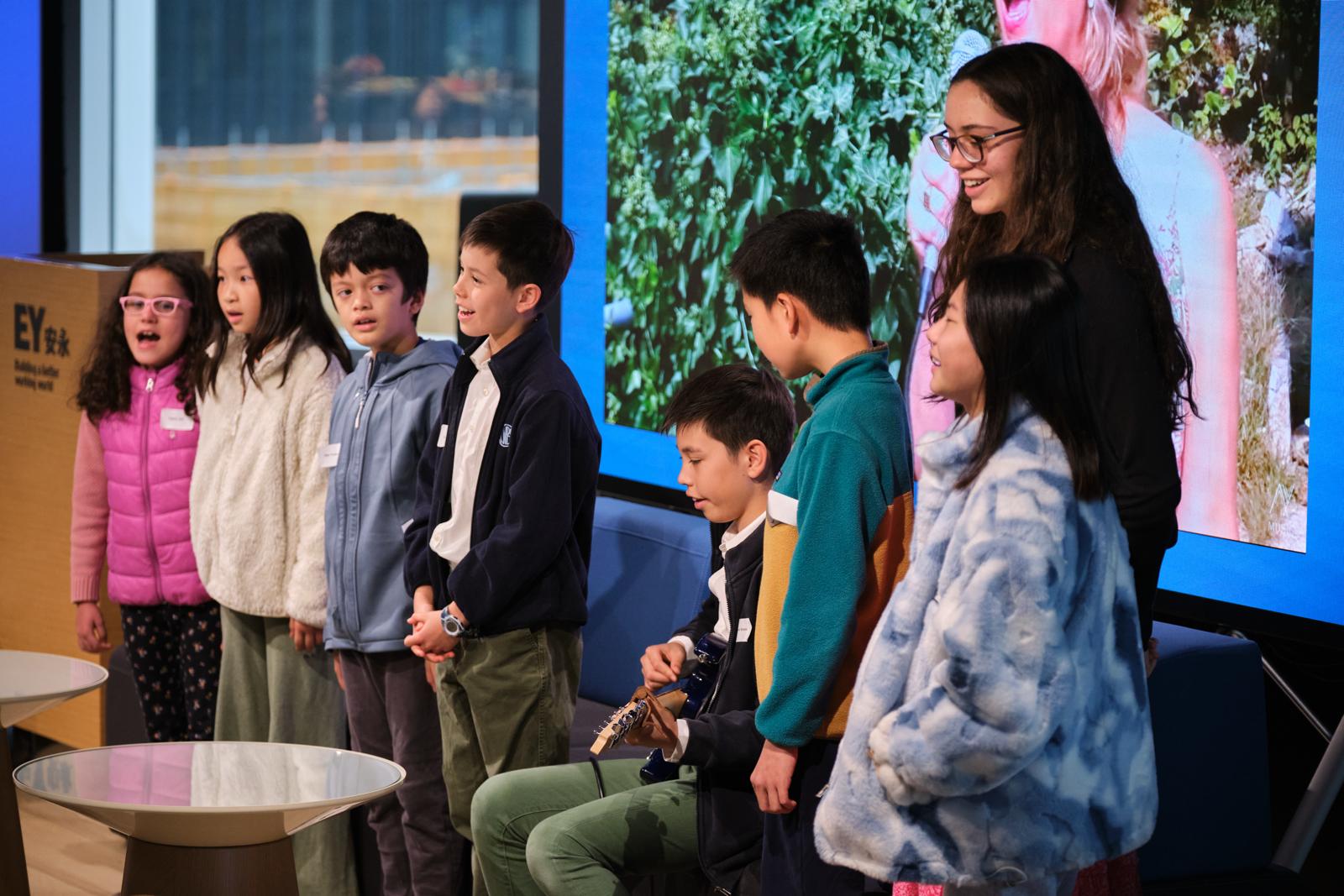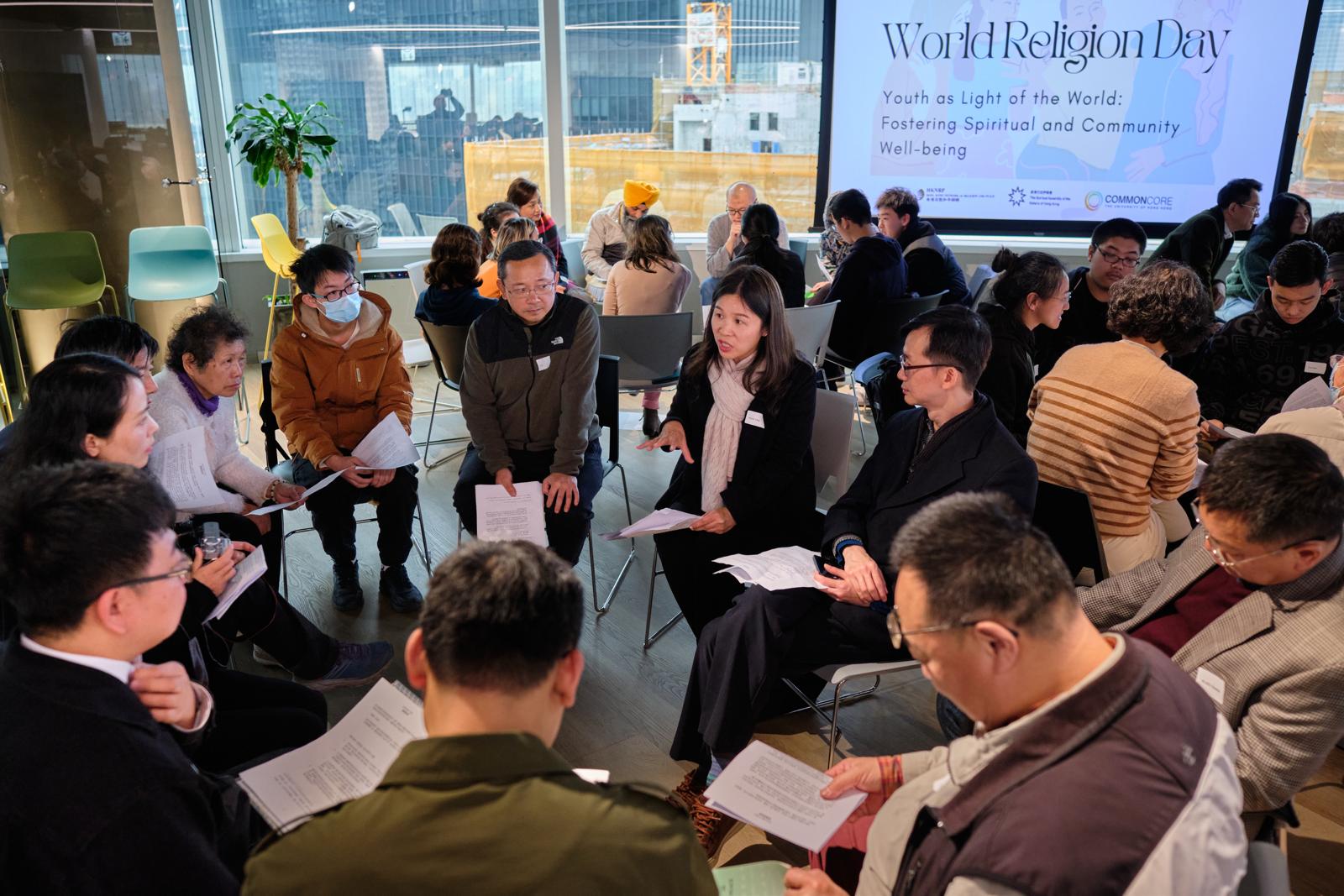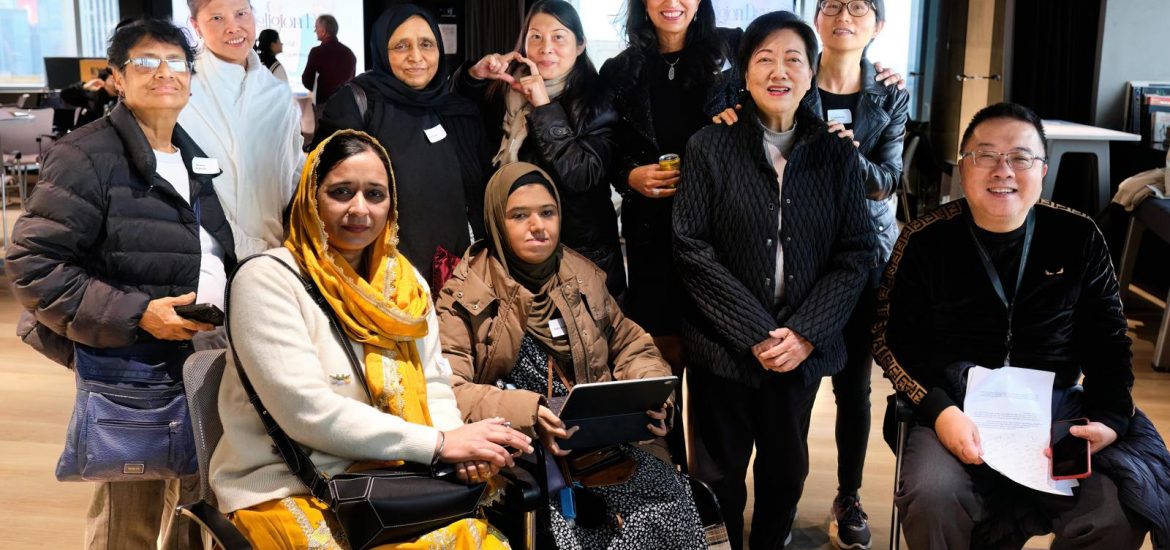Buddhist leaders, organizations, and communities should start stealing ideas for events from the Baha’is.
Each year, if I am in Hong Kong, I attend World Religion Day, an established tradition of the Baha’i world fellowship since 1950. The organization that hosts this event in the Asian hub is the Spiritual Assembly of the Baha’is of Hong Kong, and this year they brought the subject of youth to the forefront. Each year there is a different foci, and critically, attendees (who come from a range of faith traditions) enjoy not only a series of interfaith performances and prayers, but also break into groups to discuss the relevant rubric. Dr. David Palmer and Ms. Meena Datwani, who respectively helped to emcee and organize January 24’s World Religion Day, put together with their team a rich line-up of friends coming together to celebrate Hong Kong’s young people.

I was particularly fond of the Baha’i children’s class rendition of Baha’i songs, the various speeches by religious representatives about how young people play a role in the life of the faith (this year’s reps were: Helen Leung of the Baha’is, Sa’diyyah Nesar of Islam, Gurmel Singh of Sikhism, Jimmy Wu of the Christians, and Stream Zeng from Buddhism). In the grand project of the house of Baháʼu’lláh, founder of the Baha’i faith (he was only 25 years old when he declared his mission), young people are encouraged to see their development as refining their service to humanity. Vocation and calling are critical rubrics not simply based on a vague idea of selflessness or charity. It is rather, “based on the belief that humanity is living at a very special time in its history. In its development, humankind has passed through stages similar to infancy and adolescence and now stands at the beginning of its maturity. . . . Essential to civilization building then is accepting that all the people of the world, indeed of every community, are one.” (The Baha’i Faith)
As a tradition that values the potential for Buddhahood in all beings, Buddhism sees the flourishing of people in their childhood, teen years, and adulthood as particularly critical for a life of happiness and spiritual meaning. While the exact parameters of youth are defined differently in different societies, I like to think of youth as the period of our pre-adult life (whenever that begins, which itself can be fairly malleable) during which we are seeking identity and meaning. As young people, we need to be given space but also safety, to be taught and mentored without being judged. We must be understood on our own terms but also be exhorted to approach the world with open minds and empathy.

I often half-joke to friends that interfaith engagement requires a high EQ. But perhaps I should be more serious about that assertion. One needs to be truly emotionally intelligent. To encounter another faith community in a spirit of good faith, treading that fine line between conversation and conversion, seeking to learn without responding immediately or defensively, requires a genuine humility. It challenges an individual to see the Other as someone whose opinion and ideas are of inherent value, and to see their spiritual journey as valid in and of itself. Humanity is mired in the Three Poisons of greed, hatred, and delusion, and this requires a concerted effort to move the world, in Baha’i language, toward integration rather than disintegration.
The question of the Other’s existence is no longer: do they have a place in my faith, but rather, how has the divine in my faith prepared a place for them? Why have they appeared to me here, at this time, in this life? It is so that we can unite, to come together. To move toward disintegration means to descend into violence, war, and corruption, matching the collapse of an outmoded order. It is now incapable of dealing with the needs of a maturing world. The calling of youth is to move toward integration, toward individual and societal transformation.
Related news from BDG
Hong Kong Baha’i Community Hosts World Religion Day, Celebrating Youth as “Light of the World”


